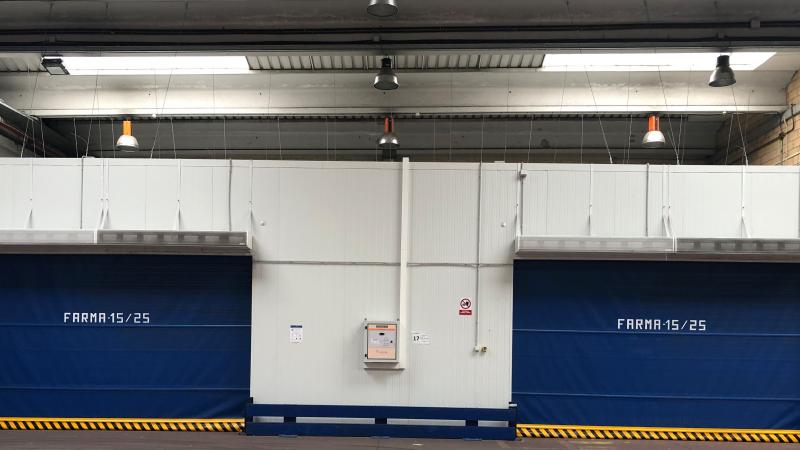Worldwide Flight Services’ (WFS) stations in Madrid and Barcelona have obtained Good Distribution Practice (GDP) certifications.
Among WFS’ 14 dedicated pharma facilities in Europe, USA, South Africa and Thailand, several have already been awarded GDP certification (Cape Town, Copenhagen, Cork, Dublin, Johannesburg, London and Paris CDG), or are in the process of obtaining this certification (Amsterdam, Bangkok, Brussels and Frankfurt). A number of these stations, including Amsterdam, Barcelona, Madrid and Paris CDG, also have IATA CEIV Pharma certifications.
GDP certification is awarded after an independent audit to confirm a pharma facility’s temperature management capabilities, as well as the suitability of its auditing processes, risk assessment and corrective/preventive measures. The company says that it provides WFS customers with a guarantee that temperature-controlled pharmaceutical products are consistently stored, transported and handled under the product-specific conditions required by the pharma industry.
WFS’ managing director for Cargo, Spain Humberto Castro, said: “As the world’s leading air cargo handler, WFS is already at the forefront of best-practice for pharma shipments in terms of compliance and our ability to safeguard product integrity. Now that our Madrid and Barcelona stations have both GDP and IATA CEIV certifications, customers have the added assurance that we meet the highest global standards for handling air cargo shipments of pharmaceuticals.”
WFS’ trained pharma handling teams at Madrid and Barcelona airports use dedicated docks and maneuvering areas for the safe loading and unloading of temperature-sensitive shipments, supported by specialised trucks, trailers and dollies.
Located in the heart of each airport’s cargo areas, the WFS stations in Barcelona and Madrid have approximately 640m2 and 450m2 of landside and airside acceptance capability respectively, with the latest technology for warehouse management, real-time temperature monitoring, shipment tracking, CCTV monitoring and security alarms. The two stations currently handle over 8,600 tonnes of temperature-controlled pharma shipments a year for six main airline customers, for products needing to be stored between +2°C to +8°C and +15°C to +25°C.


